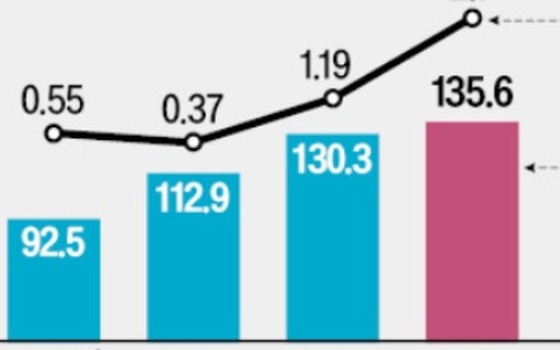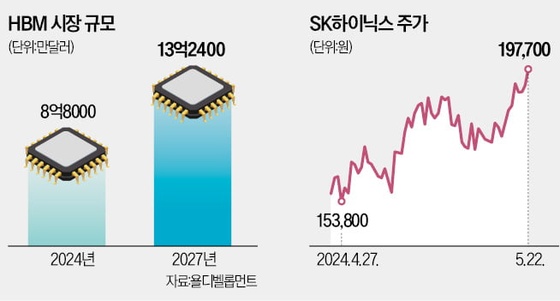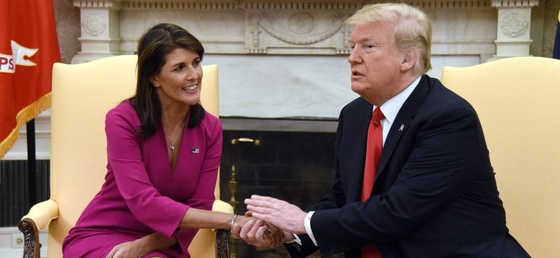입력2006.04.02 18:39
수정2006.04.02 18:42
오이겐 뢰플러 < 하나알리안츠 사장 >
특정분야에 대한 정부 보조금이나 투자유치,고용창출을 위한 인센티브는 경제 정책 입안자들이 자주 사용하는 도구다.
하지만 이는 많은 경우에 자본의 비효율적인 배분을 초래한다.
장기 경제성장률이나 사회복리를 증진시키기 보다는 오히려 감소시키는 결과를 낳는다.
벤처 캐피털이 그 한 예다.
새로 설립된 기업은 종전부터 자리 잡고 있던 큰 기업들에 비해 입지가 취약하다.
상식적으로 당연히 일종의 특수 보호가 필요할 것으로 생각된다.
또 경제개발은 혁신에 의해 추진된다.
오래된 제품들과 현재 자리 잡고 있는 기업들은 새로운 기술과 새로운 비즈니스 모델로 대체된다.
벤처기업들은 이 과정에 있어서 중요한 역할을 담당한다.
벤처 부문이 활성화될수록 경제가 전반적으로 혁신적이고 성공적일 수 있다.
미국 경제가 좋은 예다.
따라서 많은 국가들에서는 정부가 벤처 기업을 위한 특별 자금 프로그램을 제공하고 있다.
하지만 이들이 잊고 있는 것은 미국 벤처업계의 성공은 정부의 보조보다는 자유시장에 의한 것이라는 사실이다.
정부 보조가 후할수록 부정적인 결과의 가능성은 높아진다.
많은 벤처 회사들은 새로운 실용적인 기술 개발에 심혈을 기울이기보다는 더 많은 공공자금을 유치하기 위해 발버둥친다.
지속가능성이 없고 민간 투자자들의 엄격한 검증 과정을 도저히 통과하지 못했을 법한 비즈니스 모델들이 쏟아져 나온다.
몇년 전 펼쳐졌던 벤처 거품을 회상해본다면 이런 현상이 꽤나 자주 일어났다는 사실을 알 수 있다.
많은 벤처 기업들은 풍부한 재원을 연구개발에 투자하기보다는 투기적 목적으로 부동산이나 다른 벤처 기업에 투자했다.설상가상으로 거품이 붕괴되고 나서 이런 회사들이 어려운 상황에 처하게 되면 정부는 구제 명목으로 추가적으로 자금을 투입하라는 압력을 받는다.
그래도 여전히 벤처 부문의 활기는 경제 전반에 있어서의 큰 플러스 요인이다.
그렇다면 어떻게 자본의 배분을 왜곡시키지 않으면서 동시에 벤처 기업들을 부흥시킬 수 있을 것인가? 각국 정부들은 벤처 투자 수익에 대한 세금을 감면해주거나 면제해줄 수 있다.
그렇게 된다면 성공적인 벤처 투자자들,즉 충분한 조사에 근거하여 투자 종목을 신중히 선택해서 운영한 사람들에게만 혜택이 돌아갈 것이다.
이런 방법은 기업이 지속 가능한 비즈니스 모델을 가지고 있고 투자할 만한 가치가 있는지를 평가하는 민간 자본 시장의 주요 기능을 저해하지 않는다.
일부에서는 민간 투자자들과 공동으로만 정부 보조가 가능하도록 하면 민간 투자의 장점을 살리면서 동시에 경제 전체에 있어서의 벤처 투자 규모를 확장시킬 수 있다고 주장한다.
물론 이런 방법이 정부 보조만으로 이뤄지는 경우보다는 나을지 모르지만 여전히 큰 위험이 존재한다.예를 들어 한 벤처 기업이 3백억원의 설립자금을 필요로 한다고 가정하자.하지만 민간 투자자들은 이를 상당히 위험한 투자로 보고 투기적 목적으로 이의 반만을 투자할 의향이 있다고 하자.공공자금 없이는 회사가 설립될 수 없을 것이다.
하지만 공공 보조 자금의 존재로 인해 이런 투자가 이뤄지게 되면 경제 전반에 실질적이고 지속 가능한 도움을 전혀 주지 못하는 투기성 투자를 부추기게 되는 것이다.
경제 정책 입안자들은 이런 식으로 직접적인 자금을 공여하기보다는 불필요한 관료적 절차나 제약들을 없애고 노동 시장 유연성을 증대시킴으로써 기업 스스로 발전할 수 있게 해줘야 한다.
실제로 융통성 없는 노동법 때문에 기업들이 추가 직원들을 고용하지 못하는 경우가 흔하다.
이 경우 정부는 노동 시장의 부족분에 대한 보상을 제공한다.
이러한 성격의 보상은 실질적인 고용창출 효과가 미미하다.
또 보조금의 충당을 위해서는 세금을 징수해야 하고 따라서 고용 부문에 있어서의 부정적인 요소들과 함께 높은 세금부담을 떠안아야 한다.
보조금으로 문제 진화에 나서기보다는 문제를 뿌리부터 근절시키는 것이 더 효과적일 것이다.
------------------------------------------------------------
The side-effects of state subsidiesSubsidies for certain sectors or incentives for corporate investment or hiring are a common tool of economic policy makers. However, they often result in an inefficient allocation of capital.
Instead of enhancing, they actually reduce long-term economic growth and the welfare of a society.Venture capital is one example. Start-up companies are more fragile than established big corporations.
Common sense seems to tell us that they need special nurturing. In addition, economic development is driven by innovation: Old products and incumbent firms are replaced by new technologies and business models. Venture companies play a pivotal role in this process. The more vital the venture sector, the more innovative and successful an economy.
The US economy is the prime example. No wonder that many governments around the world provide special funding programs for venture companies. They seem to forget that the success of the US venture industry is more due to market forces than heavy government support.
The more generous state help programs, the worse the potential adverse results can be: Instead of focusing on the development of viable new technologies, many venture companies will just rush to get as much publicly supported funding as possible. Many unsustainable business models will be launched which could have hardly passed the scrutiny of private investors.
If we recall the venture bubble of a few years ago, this actually happened quite often. Many venture companies used ample financing not only for investing in R&D. Rather, they invested in real estate or other venture companies for speculative purposes. To make matters worse, once the bubble bursts and companies get into trouble, governments come under pressure to provide additional rescue funds.Still, a flourishing venture sector is a big positive for an economy. How to promote venture companies without distorting the allocation of capital? Governments could reduce or even abolish taxes on gains from venture investments. Then only successful venture capitalists would benefit, i.e. the ones who did their homework and carefully selected and managed their investments.
This would preserve the main function of a private capital market, namely to carefully assess whether a company has a sustainable business model and is a worth an investment or not.
One might argue that if government sponsored funds only co-invests with private investors, one can have both the benefit of private allocation of capital and providing additional public financing to enlarge the scale of venture investment in an economy.
Even so private-public co-investment is better than pure public investment, there remains a significant risk. Let"s assume a venture company needs 30 bn Won of equity financing.
However, private investors are only willing to finance half of that amount as they consider the investment as very risky and are only willing to invest small amounts out of more speculative reasons.
Without public funding, such a company could not be started.
However, the availability of supplementary public funds enable financing for such marginal businesses and actually encourage speculative private venture investment which brings no real and sustainable benefit for an economy.
Rather than providing funding programs, economic policy makers should concentrate on eliminating bureaucratic red tape for businesses and making labor markets more flexible so that companies can flourish on their own.
In reality, what all to often happens instead is that rigid labor laws prevent companies from hiring additional staff.
Then governments provide subsidies to compensate for labor market deficiencies. Of course this is only a partial compensation and usually has not much employment effect.
In addition, subsidies have to be financed and eventually keep the tax burden for companies high with all the negative consequences for employment.
Rather than trying to alleviate a problem with subsidies it would be much better to remove the problem from its roots.
![[한경에세이] 채용의 기준은 성과역량이다](https://img.hankyung.com/photo/202405/07.36598454.3.jpg)
![[기고] 전세사기특별법, 또 다른 실망을 주지 않길](https://img.hankyung.com/photo/202405/07.36813767.3.jpg)
![[시론] '가상자산 이용자 보호법' 시행을 앞두고](https://img.hankyung.com/photo/202405/07.34994511.3.jpg)








![[단독] '2조' 도박사이트 덮쳤는데…비트코인 1500개 실종](https://timg.hankyung.com/t/560x0/data/service/edit_img/202405/00bf91532a4bd70bc2adbaf17c8232a8.jpg)

!["한국 가면 꼭 들러야할 곳"…3대 쇼핑성지 '올·무·다' 잭팟 [설리의 트렌드 인사이트]](https://timg.hankyung.com/t/560x0/photo/202405/01.36761565.1.jpg)
